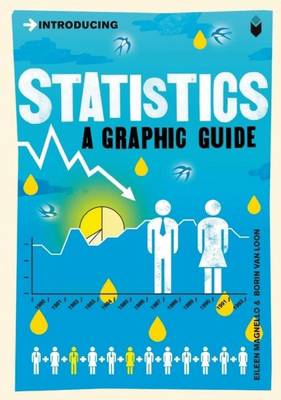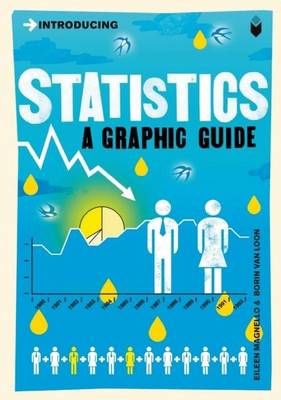
Door een staking bij bpost kan je online bestelling op dit moment iets langer onderweg zijn dan voorzien. Dringend iets nodig? Onze winkels ontvangen jou met open armen!
- Afhalen na 1 uur in een winkel met voorraad
- Gratis thuislevering in België vanaf € 30
- Ruim aanbod met 7 miljoen producten
Door een staking bij bpost kan je online bestelling op dit moment iets langer onderweg zijn dan voorzien. Dringend iets nodig? Onze winkels ontvangen jou met open armen!
- Afhalen na 1 uur in een winkel met voorraad
- Gratis thuislevering in België vanaf € 30
- Ruim aanbod met 7 miljoen producten
Zoeken
€ 12,95
+ 25 punten
Omschrijving
From the medicine we take, the treatments we receive, the aptitude and psychometric tests given by employers, the cars we drive, the clothes we wear to even the beer we drink, statistics have given shape to the world we inhabit. For the media, statistics are routinely 'damning', 'horrifying', or, occasionally, 'encouraging'. Yet, for all their ubiquity, most of us really don't know what to make of statistics. Exploring the history, mathematics, philosophy and practical use of statistics, Eileen Magnello - accompanied by Bill Mayblin's intelligent graphic illustration - traces the rise of statistics from the ancient Babylonians, Egyptians and Chinese, to the censuses of Romans and the Greeks, and the modern emergence of the term itself in Europe. She explores the 'vital statistics' of, in particular, William Farr, and the mathematical statistics of Karl Pearson and R.A. Fisher.She even tells how knowledge of statistics can prolong one's life, as it did for evolutionary biologist Stephen Jay Gould, given eight months to live after a cancer diagnoses in 1982 - and he lived until 2002. This title offers an enjoyable, surprise-filled tour through a subject that is both fascinating and crucial to understanding our world.
Specificaties
Betrokkenen
- Auteur(s):
- Illustrator(s):
- Uitgeverij:
Inhoud
- Aantal bladzijden:
- 176
- Taal:
- Engels
- Reeks:
Eigenschappen
- Productcode (EAN):
- 9781848310568
- Verschijningsdatum:
- 3/09/2009
- Uitvoering:
- Paperback
- Formaat:
- Trade paperback (VS)
- Afmetingen:
- 117 mm x 165 mm
- Gewicht:
- 158 g

Alleen bij Standaard Boekhandel
+ 25 punten op je klantenkaart van Standaard Boekhandel
Beoordelingen
We publiceren alleen reviews die voldoen aan de voorwaarden voor reviews. Bekijk onze voorwaarden voor reviews.











